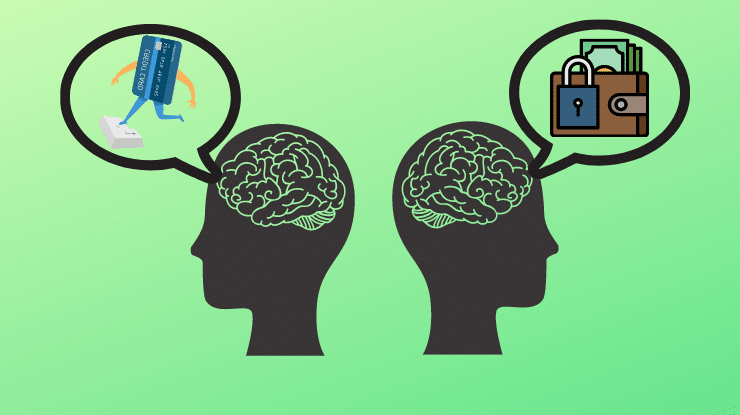You swear, starting today, you’re going to curb your spending. And you really mean it. Until….
You spy an online ad for this adorable summer dress that’s to die for. Later, you flip through the Costco catalogue and that Vitamix Blender you’ve been eyeing is on sale.
Without thinking, you whip out your card, make your purchase and you feel great. Until the bill comes. Then you remember your vow and beat yourself up for not having more will-power.
BUT WAIT! According to the latest research, all the will power in the world may not be enough. Blame it on your brain.
A recent study did brain scans on people who planned to buy with credit cards and those planning to use cash. They discovered a notable disparity in brain activity between the two groups.
“Buying on credit doesn’t just ease shoppers’ inhibitions,” reports the Wall Street Journal. “It actively encourages purchases.”
Here’s what happens. You see an item you like. Just knowing that you’ll be charging it causes the reward centers in your brain to instantly light up, releasing a shower of neurochemicals which trigger an irresistible craving to spend. (Note the emphasis on irresistible!)
This pattern does not occur when using cash. “It’s a very stark difference,” explain the researchers.
Of course, you could cut up your credit cards. Or refuse to use them. But these days, when most purchases are made online, that gets a bit tricky.
Instead, why not apply the 3 steps of the Rewire Response I lay out in my latest book, Rewire for Wealth. I assure you, when it comes to the brain’s fierce gravitational pull, will power rarely works.
First, Recognize your strong impulse to buy, with curiosity not criticism. “Isn’t that interesting! I’m having a thought about buying that dress, even though I promised myself I wouldn’t spend.”
Next, Reframe that urge, with a more positive affirmation. “I feel so good when I keep my promises to myself.” Or “I’m excited to put the price of that dress into my bank account instead.”
And finally Respond Differently by ignoring the ad (or returning your purchase) and depositing that money in savings.
Easier said than done? You bet! But, if you repeat these three steps over and over again, you’ll find it gets consistently easier to resist the urge to spend.
Can you recall a time when you resisted the urge to spend? How did that feel to you? Leave me a comment below.



Comments & Feedback